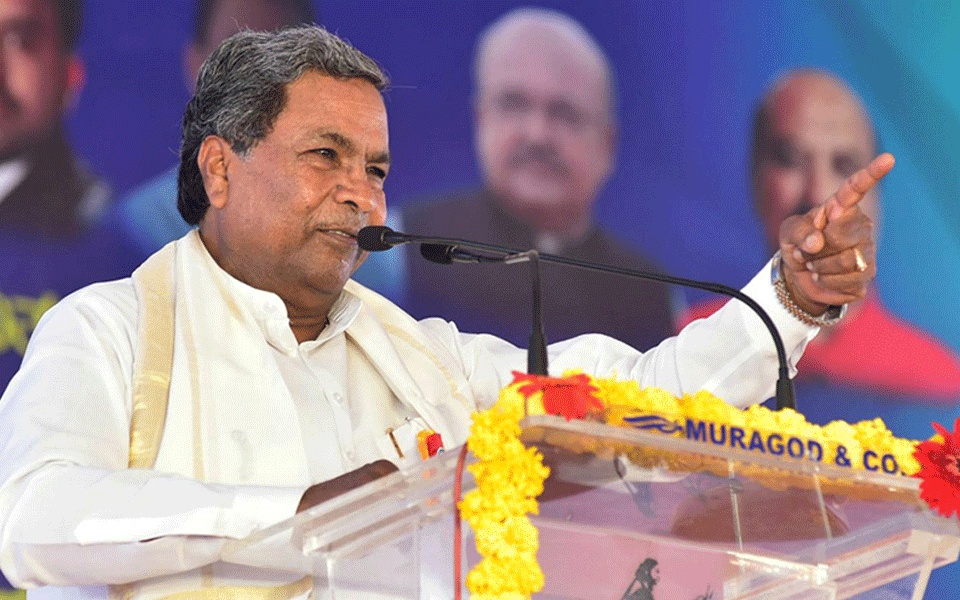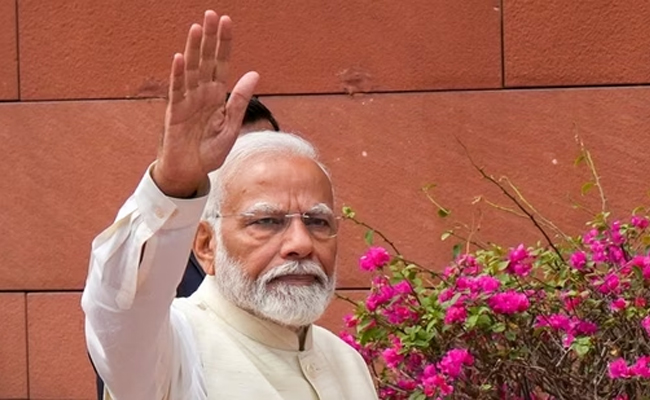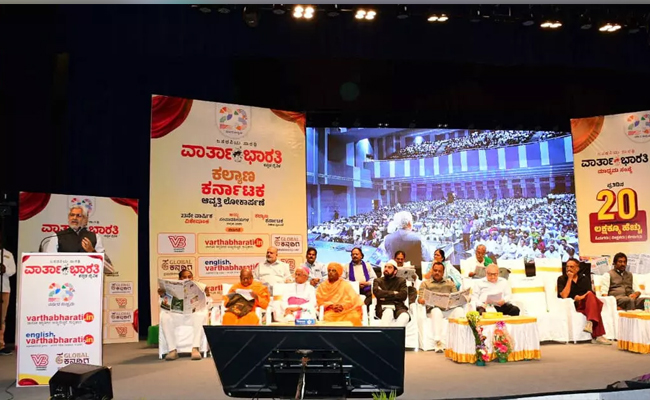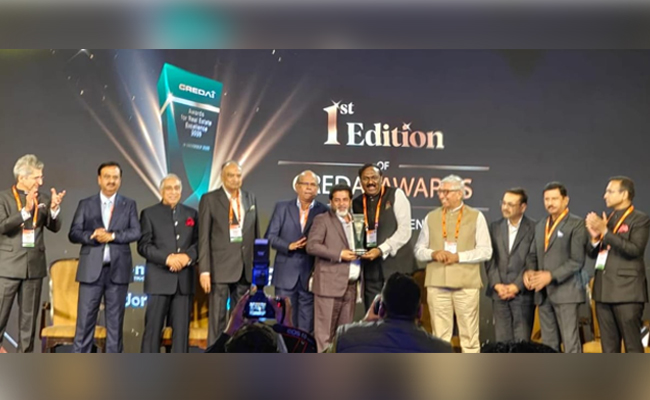Bengaluru, Jul 2: A day after two Congress MLAs tendered their resignations, Karnataka Deputy Chief Minister G Parameshwara Tuesday sought to blame the BJP for the development and said a cabinet sub-committee has been formed to look into the issue of land to JSW Steel as flagged by one of the legislators.
Former Karnataka CM Siddaramaiah also came out and lashed out at the Union Home Minister Amit Shah and Prime Minister Narendra Modi, adding that the duo were directly involved in the resignation of the two Congress MLAs and blamed them for the current political scenario in the state.
In a setback to the 13-month-old JD(S)-Congress government, the grand old party's Vijayanagar MLA Anand Singh and rebel legislator Ramesh Jarkiholi, who has been sulking ever since he was dropped from the cabinet last year, sent their resignations to the Assembly speaker.
Singh, a former BJP member who joined the Congress ahead of the May 2018 assembly elections, resigned citing a number of issues, including the decision to sell land to JSW Steel in mineral-rich Ballari district.
The deputy chief minister told reporters, "If land to JSW Steel was an issue then he should have spoken to us. We have constituted a cabinet sub-committee. It has to submit a report to the cabinet."
He, however, clarified that he had not spoken to the two MLAs.
Singh, to a question whether he would withdraw the resignation, had Monday said he would "wait for answers" from the government to his demands.
Parameshwara, a senior Congress leader, blamed the BJP for the present political scenario in the state, alleging that it was 'pressuring' the party MLAs.
"The information we have is that Anand Singh had met some BJP leaders. It means the BJP leaders might have pressured him. Ramesh Jarkiholi has been repeatedly saying he was in touch with the BJP leaders... It is a well known fact that BJP has pressured them," he said.
BJP state president B S Yeddyurappa rejected the allegations and accused the Congress of trying to divert attention from the dissidence it faced.
Meanwhile, state Assembly Speaker K R Ramesh Kumar, told reporters in Kolar, that Jarkiholi had neither met him to handover his resignation nor spoken to him.
On Singh's resignation, he said it has been received and he would take further action according to rules once he returns.
"No one has sought time from me for meeting, I have not given time to any one," Kumar said.
Jarkiholi had Monday told a local TV channel that he was in Mumbai and had sent his resignation letter through fax and he would personally give it to the Speaker Tuesday. Reports said Jarkiholi is expected to meet the Speaker Wednesday.
Let the Truth be known. If you read VB and like VB, please be a VB Supporter and Help us deliver the Truth to one and all.
Kolkata (PTI): Prime Minister Narendra Modi’s helicopter failed to land at the Taherpur helipad in West Bengal owing to low visibility on account of dense fog in the area on Saturday, an official said.
The PM’s chopper made a U-turn after hovering over the helipad ground for a while and returned to the Kolkata airport, he said.
Till reports last received, the Prime Minister was waiting at the airport for further updates on the weather situation.
It wasn’t immediately clear if Modi would reach the rally venue district by road or whether he would wait for the weather to clear up and make another attempt to reach Taherpur by the aerial route, the official said.
Earlier in the day, the Prime Minister reached Kolkata at around 10.40 am and took a chopper onward to Taherpur in Nadia district, where he is scheduled to hold an administrative programme to launch highway projects in West Bengal, followed by a political rally of the BJP, titled Parivartan Sankalpa Sabha, which he is supposed to address.





